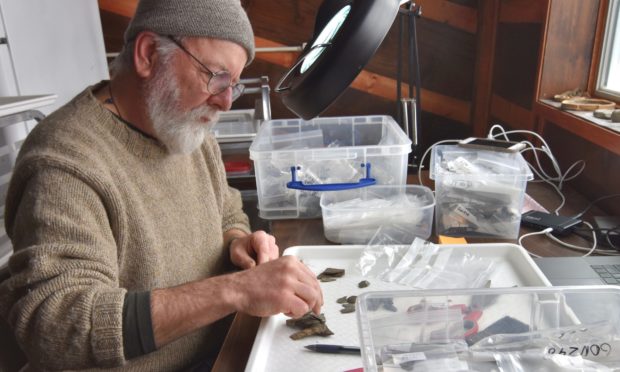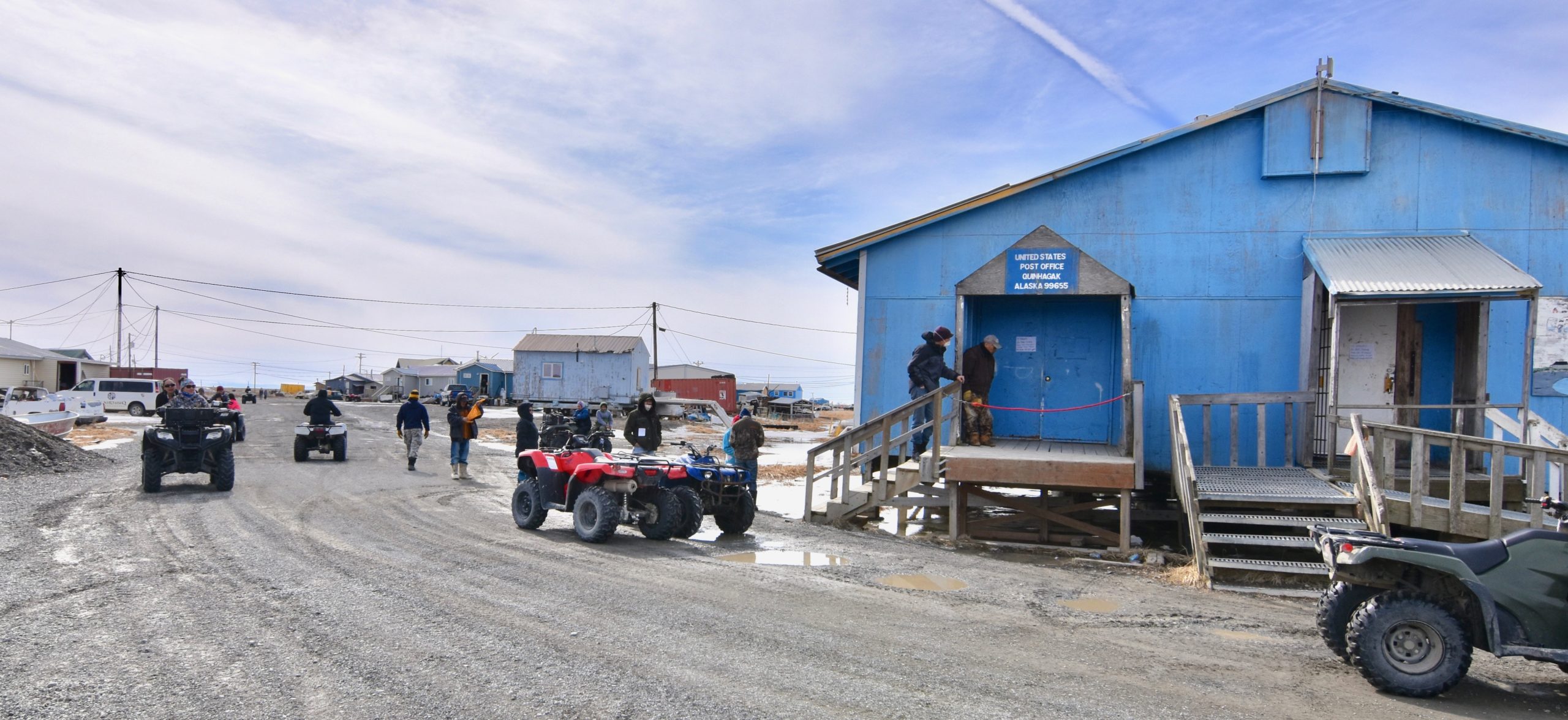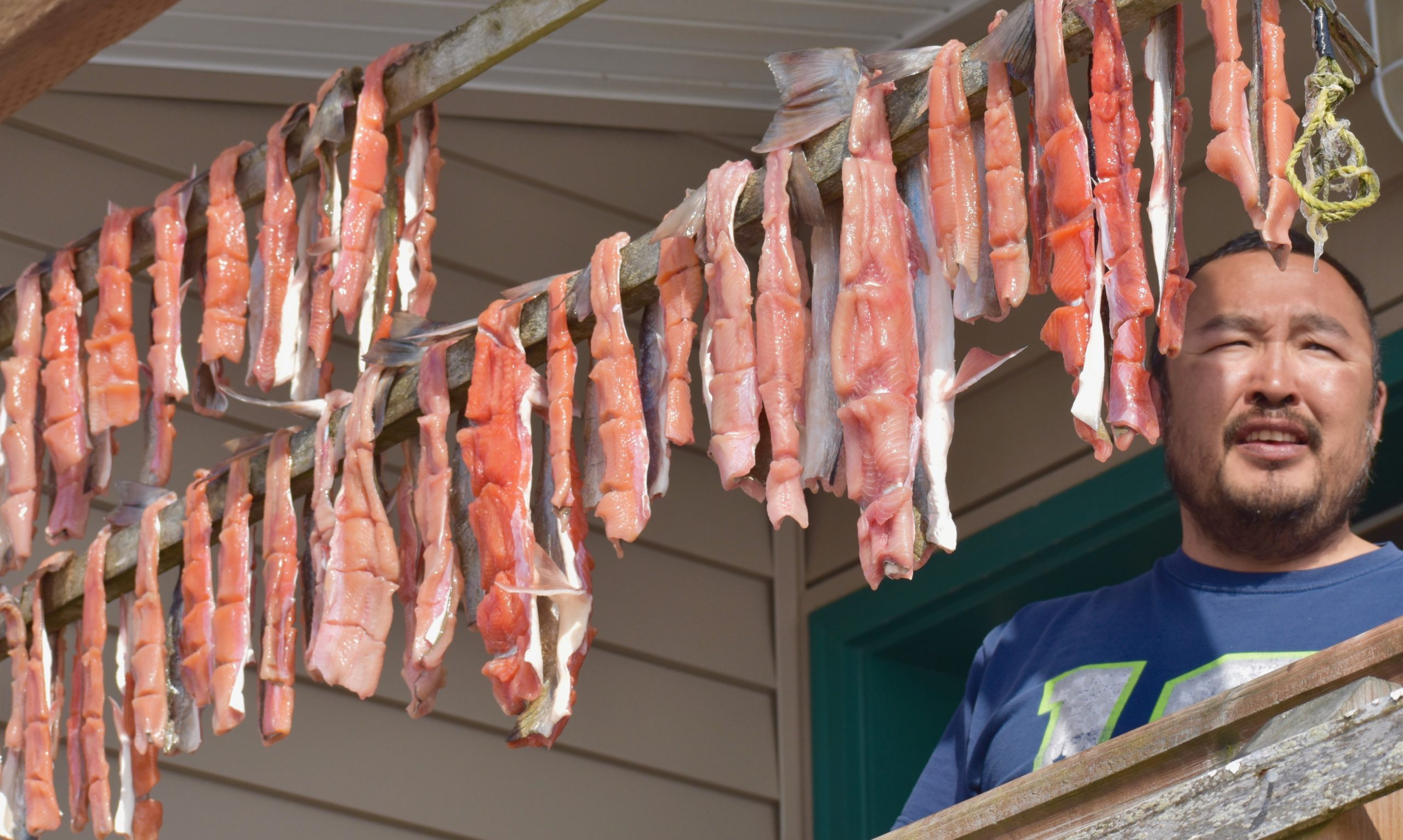An Aberdeen archaeologist working with centuries-old artefacts is spending lockdown in one of the most remote areas of the planet.
Rick Knecht has been living and working in the small Alaskan village of Quinhagak since October, contending with food shortages, freezing conditions and prowling wolves.
Alongside a team of others from Aberdeen University, he has worked on the Nunalleg dig site during each of the last 11 years, with each expedition lasting several months at a time.
During their work they have uncovered more than 100,000 artefacts including ritual masks, ivory tattoo needles and a belt of caribou teeth – all perfectly preserved under the arctic soil.
Quinhagak was one of the first Alaskan villages to go into lockdown amid the coronavirus pandemic, with non-residents “forbidden” from entering until at least the end of May.
In addition, any locals returning from elsewhere must enter a strict 14-day quarantine with members of their household.
Mr Knecht has been counted as one of the village’s residents and has been allowed to stay while it contends with keeping citizens safe from Covid-19.
He said: “It has been a cold winter with wind chills exceeding -60F (-51C).
“Caribou have been scarce and, for the first time in memory, starving wolves invaded the community looking for food.
“Armed men patrolled the village outskirts and children were sheltered in homes and occasionally evacuated from outdoor playgrounds using school buses.
“Pipes froze across the village and I’m still without plumbing in my cabin. But the temperatures now are above freezing in mid-day and the tundra has emerged from the snow.”
While the visitor centre opened by Aberdeen University and local firm Qanirtuuq, Inc is closed, the team’s archaeological research is continuing.
Some of the 100,000 items already uncovered date back to the 16th and 17th Centuries and offer a detailed look at Yup’ik culture in Quinhagak before outside contact.
Dr Knecht said: “Quinhagak is very remote and so research on the collection is immeasurably enriched by community engagement and participation.
“Although socialising with elders and culture bearers has been curtailed with social distancing, we can still exchange ideas through local internet and texting.
“Lockdown has provided a unique opportunity to focus on collections work – time that is otherwise very hard to get – and by summer’s end I hope to have the collection completely catalogued.”


